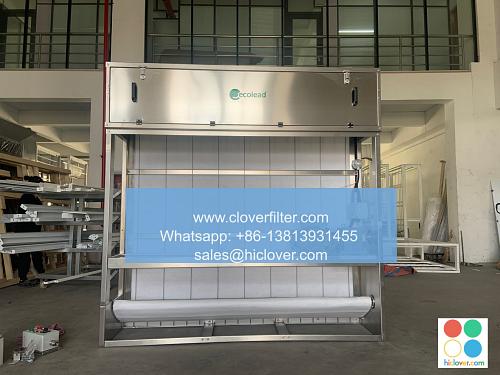Global Air Filter Standards

The importance of clean air cannot be overstated, and with the increasing awareness of air pollution’s impact on public health, the need for effective air filtration systems has become a top priority. To address this concern, various global air filter standards have been established to ensure the quality and performance of air filters in different applications. In this article, we will delve into the world of global air filter standards, highlighting their significance, and exploring the various application areas where they play a crucial role.
What are Global Air Filter Standards?
Global air filter standards refer to the guidelines and regulations set by international organizations, such as the International Organization for Standardization (ISO) and the American Society of Heating, Refrigerating and Air-Conditioning Engineers (ASHRAE), to ensure the quality, safety, and performance of air filters. These standards cover various aspects of air filtration, including indoor air quality (IAQ), air purification, and filtration efficiency. By adhering to these standards, manufacturers can ensure that their air filters meet the required specifications, providing clean and healthy air for various environments.
Key Application Areas for Global Air Filter Standards
Global air filter standards have far-reaching implications, and their application areas are diverse and widespread. Some of the key sectors that benefit from these standards include:
* Commercial HVAC systems: Air filters play a vital role in maintaining indoor air quality in commercial buildings, such as offices, shopping centers, and hospitals. Global air filter standards ensure that these systems provide clean and healthy air for occupants.
* Industrial air filtration: In industrial settings, air filters are used to remove particulate matter (PM), volatile organic compounds (VOCs), and other pollutants from the air. Global air filter standards help ensure the effectiveness of these systems, protecting workers’ health and preventing environmental pollution.
* Residential air purification: With the increasing awareness of indoor air pollution, residential air purification systems have become essential for maintaining healthy indoor environments. Global air filter standards guarantee the performance and safety of these systems, providing homeowners with clean and fresh air.
* Aerospace and automotive industries: In these sectors, air filters are used to maintain cabin air quality and prevent airborne contamination. Global air filter standards ensure the reliability and efficiency of these systems, safeguarding the health and safety of passengers and crew members.
Benefits of Global Air Filter Standards
The implementation of global air filter standards offers numerous benefits, including:
* Improved indoor air quality: By ensuring the quality and performance of air filters, global air filter standards contribute to better indoor air quality, reducing the risk of respiratory problems and other health issues.
* Enhanced energy efficiency: Effective air filtration systems can help reduce energy consumption, as they prevent the accumulation of dirt and debris that can decrease the efficiency of HVAC systems.
* Increased product reliability: Global air filter standards promote the development of reliable and durable air filters, reducing the need for frequent replacements and minimizing maintenance costs.
* Environmental protection: By reducing air pollution and greenhouse gas emissions, global air filter standards contribute to a healthier environment and help mitigate the impacts of climate change.
Conclusion
Global air filter standards play a vital role in ensuring the quality and performance of air filters in various applications. By adhering to these standards, manufacturers can provide effective and reliable air filtration systems, contributing to better indoor air quality, energy efficiency, and environmental protection. As the world continues to grapple with the challenges of air pollution and climate change, the importance of global air filter standards will only continue to grow, highlighting the need for increased awareness and adoption of these standards to create a healthier and more sustainable future. It seems like you’re ready to start a conversation or ask a question, but you haven’t provided a specific topic or prompt yet. Could you please provide more details or clarify what you’re interested in discussing? I’m here to help with a wide range of topics, from science and history to entertainment and culture. Let me know how I can assist you!

